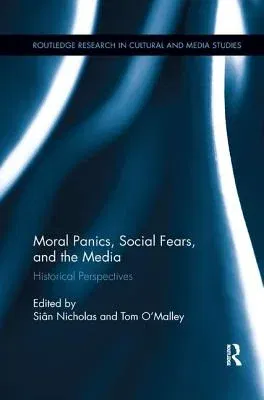Moral Panics, Social Fears, and the Media: Historical PerspectivesPaperback, 6 February 2018

Qty
1
Turbo
Ships in 2 - 3 days
Only 1 left
Free Delivery
Cash on Delivery
15 Days
Free Returns
Secure Checkout

Part of Series
Routledge Research in Cultural and Media Studies
Print Length
264 pages
Language
English
Publisher
Routledge
Date Published
6 Feb 2018
ISBN-10
1138548588
ISBN-13
9781138548589
Description
Product Details
Book Format:
Paperback
Country of Origin:
US
Date Published:
6 February 2018
ISBN-10:
1138548588
ISBN-13:
9781138548589
Language:
English
Location:
Oxford
Pages:
264
Publisher:
Weight:
489.88 gm